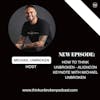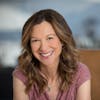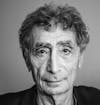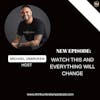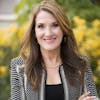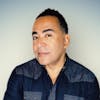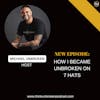E296: The NICU, trauma, and being a working mother with Susan Landers | Trauma Healing Podcast
In this episode, I'm glad to be joined by my guest – Susan Landers; we talk about the NICU, trauma, and being a working mother. Dr. Landers practiced academic neonatology for fourteen years and served on the faculty of two medical schools – Baylor...
See show notes at: https://www.thinkunbrokenpodcast.com/e296-the-nicu-trauma-and-being-a-working-mother-with-susan-landers-trauma-healing-podcast/#show-notes
In this episode, I'm glad to be joined by my guest – Susan Landers; we talk about the NICU, trauma, and being a working mother.
Dr. Landers practiced academic neonatology for fourteen years and served on the faculty of two medical schools – Baylor College of Medicine, in Houston, and the University of Arkansas for Medical Sciences, in Little Rock. In this role, she conducted clinical research, published twenty-three peer-reviewed papers, and taught medical students, residents, and fellows. While caring for patients in private practice, she served as a speaker for the Texas Department of State Health Services from 1997 to 1998. She was Medical Director of the Mothers’ Milk Bank at Austin, from 2000 to 2004, and served on the milk bank’s board of directors from 2006 to 2009.
Are you the mother has a traumatic experience?
How do you navigate these traumas while raising your children?
Find Out Now and Listen!Learn more about Susan Landers at: https://susanlandersmd.com/
Learn more about Think Unbroken and Pre-Order my new book: Unbroken Man. Plus, learn more about the free coaching and other mental health programs. Click here: https://linktr.ee/michaelunbroken
Support the Podcast: Become a listed sponsor!
Follow me on Instagram @MichaelUnbroken
Learn more about coaching at https://coaching.thinkunbroken.com
Get your FREE copy of my #1 Best-Selling Book Think Unbroken: https://book.thinkunbroken.com/
Michael: Hey! What's up, Unbroken Nation! Hope that you're doing well wherever you are in the world today. I'm very excited to be back with you with another episode with my guest, Susan Landers who is a pediatrician and author of ‘So many babies.’ Susan, how are you, my friend? I've been looking forward to this conversation for quite some time.
Susan: Thanks, Michael! I am great, I'm ready for the new year.
Michael: Yeah, same. It's gonna be a great year, I know we're gonna rock and roll. So, for people who do not know you, can you give us a little bit about your background and how you got to where you are today?
Susan: Oh, sure! I grew up in a small town in South Carolina. I went to college in Alabama and discovered that I like science, biology and chemistry, I made good grades trying to get praise wherever I could. I went to medical school in South Carolina and then I left the deep south and headed towards Dallas, Texas for my pediatric residency and after three years there went to Houston, Texas for a neonatology fellowship.
Neonatology is the intensive care of newborn infants, sick newborn infants and preemies. And so, I was trained to work in an intensive care unit for babies and I have done that for thirty-four years. I loved every minute of it, although every minute of it was not easy. I married to a physician husband, he is also in pediatrics of pediatric neonatologist and together we raised three children. After I retired Michael about five years ago, I wanted to write about my experience in the neonatal intensive care unit the (NICU). I wanted people to understand how difficult this experience was really for parents who have a sick baby and I wanted them to realize how courageous and how inspiring some of those parents can be, they have children in the hospital for four, five and six months.
I mean it is really a terrible thing to go through and many of them have already gone through in vitro fertilization to get pregnant and then have premature twins or triplets and have to see them stay in the hospital a long time. So, I wanted to tell the story that was realistic about what parents and babies go through in the NICU. As I writing the book my girlfriends and my book club said, why don't you tell the story of your being a mother at the same time? I said, oh, I just have regular mother stories, you know, like everybody and they said, no, no, no that's the whole point, I mean don't you think people expect doctors to be perfect and I said as a matter of fact my NICU moms have always said, oh, your children are perfect, oh you know everything, I'm sure you never have any problems and I go, are you kidding? I have all the problems you have, we go through all the phases, I don't know everything, I don't have all the answers so, I decided to weave my stories of my motherhood adventures and challenges into the NICU stories. And so, in chronological order it takes me from a young neonatologist and a young wife and mother all the way through to my retirement when my kids are all adult children and I'm ready to leave the NICU behind. And so, my book tells that story hopefully to help and reassure other working mothers and also to give a picture to the public of what life in the NICU is really like.
Michael: Yeah, it's really beautiful, and I have so much admiration for you for doing that. You know, as a child, I wasn't in the NICU but I was hospitalized quite frequently between multiple surgeries and having asthma attacks and one time when I was about five years old, I coded when I had an asthma attack in the middle of nowhere Kentucky and ended up in a hospital, woke up a day later cover top to bottom so I have so much love and appreciation for people especially help children. One of the things I'm curious about and where I'd like to start with this is why do you think that people hold doctors to such and huge esteem when in reality like, you guys are just like us, right?
Susan: Yes, we're human fallible. I think that is changing, I think the newer generation of doctors who are telling their patients to call them by their first name. For example, more personal with their patients and the families but in the past people have considered doctors to be special and to be expertly trained I think they made more of a big deal about all the long-term training and all the expertise. But nowadays, I don't think people care as much about physicians’ opinions, as they do about other people's opinions in general. I listen to parents all the time say, I went home, I looked it up on the internet and this is what I found and this is what we should talk about and I said, oh, my god, ask doctor google is the worst thing in the world you can do because you don't know the source, you don't know if it's an educational institution, a medical school, you don't know if it's some haywire practice. And so, people are confused nowadays and they really, I think do need to get back to talking to their position who has the expertise about certain issues whether it's for themselves or their family? I would like to see the public continue to hold doctors in high regard simply because we have so much extra training.
Michael: Yeah. And I agree with that. You know, I've had a couple of doctors who literally saved my life and I think that there's to a certain extent there's parlay where you do have to educate yourself as a human being and do what you need to do for your own body but ultimately, I think that sometimes there is a level of importance that you have to put in giving people who are experts the ability to help you, right? And I think that's all very difficult for people. What I'm curious about is how do you find yourself in, I guess what I'm looking for here is the transition, what has inspired you to write this book, to share these stories because you know, I know that they are often traumatic, I know that people were sitting right now have had traumatic experiences in the NICU, I know some of our listeners have lost children, so what would you like to convey? How do you want the world to see the truth of the reality of those experiences? Because I think we only ever received them in you know Hollywood production and on the TV show already and it just there's a heaviness to it, right?
Susan: There is. You have to realize that whenever someone has a baby in the NICU it's not a good situation. Parents are in shock, it's usually unexpected unless you thought you were gonna have triplets or quad it's always a struggle, it's always a trauma and parents who have been through infertility issues or an abnormal pregnancy or a pregnancy that becomes complicated are already synthesized then if they have a sick baby and the baby has to go to the NICU, it's trauma on top of trauma.
I think the most terrifying thing parents ever go through and it is the most stressful thing that marriages go through. So, being in the NICU can be wonderful and joyful and when we have therapy and when we have medicines and when we have techniques that help sick babies or tiny premature babies, it's wonderful and everybody is happy but sometimes things in the NICU are hard, really hard and babies are hanging on by their fingernails and parents are terrified and they can't even touch their little baby, they're so sick and things don't turn out well and there is heartbreak, quite honestly about ten percent of premature babies that are very tiny less than twenty eight weeks gestation do not survive despite all the neonatal intensive care that we have whether they die it two days of age, two months of age or six months of age it is a major trauma for their parents, it's a big, big deal. And the parents have to be shepherd along by not only the NICU staff, doctors and nurses but by their family members and their clergy because it's a trauma and the grieving process is really significant.
I follow a lot of premium groups on Facebook and Instagram and I read their comments and many of these women feel guilty for having premature babies or sick babies, it's not their fault; ninety five percent of the time it's nobody's fault, it's something bad that happens. But moms feel guilty, they feel like their body failed them, they feel like they failed their baby and so in my practice I spent a lot of time reaturing parents telling them that this was something they were gonna get through, that they would find the strength, they would be able to stay together as a couple and work together to be present for their baby. And so, most of the time the outcomes were good, the babies would respond to treatment, they would grow, they would thrive and the parents would be able to settle down and take a deep breath and hold their babies more and be present more often and really look forward to taking the baby home. But the NICU is a paradox there are extremes, we see extreme joy when things work out and we see extreme sadness when we lose babies and we try to help parents, live through that experience knowing that they're gonna go home and continue the process with support from elsewhere. But having said all that, I still think working in a NICU is more joy than it is heartbreak. We have more success than we have failures, we have more triumph there, it's a great field for getting to know people, I get to talk to the moms everyday for six months, I mean you can really get to know people that way. I could tell when a mom was developing postpartum depression, you could see in her face, you could see in her body language, you could talk to her and say, are you sleeping? Are you eating? What are you thinking about? And I could make sure that she could get therapy that she'd go to her OB and get an antidepressant.
I used to help moms with breastfeeding all the time. Human milk breast milk is liquid gold for sick babies and for little premature babies and the moms love to hear that this is something they can do that no one else can do even dad can't do it and so when moms pump their breast and dad brings in the samples and we freeze it or we feed it to the baby she's contributing something to her baby's care that is so wonderful. No doctor can give human breast milk to a baby that's anything better than moms and milk and I felt like a cheerleader, I was out there going let's help you, get your milk going and increase your milk supply and I would talk to parents about skin to skin holding so they can actually feel like they were in touch with a little baby. So, for me it was a wonderful way to connect with people, to connect with the parent not just my patients the little babies who I love but they can't say anything and they couldn't tell me if they appreciated me but the parents could. And I could tell that the parents really did appreciate the TLC that I gave them in the NICU.
Michael: So, Susan with that and now with me actually like getting a little bit more insight into that entire process in the NICU and really what you do as a doctor there. One of the things I'm curious about which I know many people listening are well, how does one be a working mother and balance that and their career? Because I think everyone knows doctors work almost if not harder than anyone else on planet earth so and we have a lot of working mothers and fathers let's be clear and parents listening caregivers who are like trying to figure out balance with this incredible career and children in the whole nine so, how do you do that?
Susan: Well, luckily, I became a doctor and a neonatologist before I had children. And I started out planning to be a perfect mother and then with a career full time sometimes stressful and children at home I learned very quickly within the first five years that I had to have help, my husband and I could afford to have a nanny which was very helpful and sometimes we had to rely on family members to help us out. My husband's schedule was a little bit easier than mine but there was a lot of give and take, there were sometimes we were ships passing in the dark if somebody was sick, if a child got sick during the day and one of us had to leave home and go take the child to the hospital and I mean to the pediatrician and the other one would come home and relieve the first one. It was juggling, it was not balanced, it was who's on first, who's on second, what are we gonna do about. It felt like, I had lots of plates spinning on lots of sticks all the time and during the first ten years when I was establishing my career, I clearly did more work than most necessary and spent less time with my children than I needed to. During the second tenth year period of my being a working mother, I think I reversed that and so all working mothers kind of judge and their head, how much work and how much childcare hair, how much time with children they're doing and depending on all the other things, how many projects it were new projects, team members, management responsibilities, they tend to try to compartmentalize work and leave work at work if it's possible when they're home really be with children at least that's what I taught myself to be. Now the process of doing that is not easy, turning off stress and taking care of yourself and a high stress job by any career, any full-time working mom you have to turn it off when you walk in the door because your kids need you, so does your spouse and so do you need time for yourself. So, it's a process I thought of learning to juggle all the constraints, all the different demands, learning how to give time to the things that were the most important, I made plenty of mistakes. Most working mothers make mistakes, they mostly think I work too much, I don't spend enough time with my children I hear that all the time and I think it's because women now are solidly in the workplace, they choose to have careers it's a choice for us, they want to be professionals or have a good job or be a breadwinner and this choice is actually a little bit different than the cultural notion of being a good mom.
Our culture tells us that being a good mom is being around all the time and preparing the dinners and taking care of the children and school meetings and teacher conferences and play dates and all the like and then there's the household chores and then there's cooking meals and then there's your husband. And so, women have grown up with this notion that being a wife and a working mother means you do these things and then you go to work and you have this great career, this great job this profession that you love that you've trained to do. And you go, oh, wow! I didn't quite plan on all this; this is a lot more than I thought I was gonna have to juggle, they learn, relearn, I learned that you cannot be two places at once, you cannot be at work doing a good job with no interruptions and at home with a sick kid, you just can't be that way.
My best example of this is when my daughter was four years old, she was sick bed with strep throat, I had to go into to the NICU for a twenty-four-hour shift and I had already talked to the nanny at the Tylenol and the amp and I was going upstairs to say about Anne and she said mommy why are you going? And I said honey, I have to go to the hospital and she said, why you have to go? And I said, I have to go take care of sick babies and she was four years old she looked up at me and she said, mommy I'm a sick baby too, that is the kind of thing that working mothers here. They hear children say things like that, I need you mommy and moms are torn literally I think dads are too but moms just feel it stronger, maybe they're more sensitize to it, it's really difficult and working mothers tend to feel guilt. I felt guilty that day I went in to do my job to work twenty-four hours in the NICU, I've felt guilty for not being able to stay home with a sick child. Now there you can talk about policy changes and sick leave and maternity leave and paid childcare care and all those things but I wanted to be there with my child and there was no way I could tell work oh, I'm not coming in today, I have a sick four-year-old, they said what about these twenty patients on ventilators that you're supposed to come in and take care of? So, working moms have to be making difficult choices it's just that simple and they have to learn to juggle the choices. It really varies, there's a great quote out there I'm not sure who said it, you have to work like you don't have children and you have to be a mother like you don't work, it's that simple. And I'm sure for dads especially dads who are bringing up kids alone they probably feel exactly the same way, anytime you are so closely linked to your work and your children and there's not a helper it tends to pull out the worst in the conflict. Now I was lucky, I had a great helper, my husband was a wonderful helper when I wasn't there, he did everything that I would normally do and he was the main cook in our family, I didn't like to cook and he didn't mind cooking and he bought all the groceries and did the cooking and we sat down as a family and ate dinner whenever I was there and I was really proud that we were able to do that. So, the answer to your question is, it's not easy working mothers deserve a lot of credit for how hard they juggle everything and how difficult it is to make those choices because I am sure they're thinking about their kids driving to work. Now you know, COVID has changed all this, but if anything, I suspect that husbands and fathers and partners have noticed what mothers do with remote working from home, having children at home during the pandemic, I imagine it could be bet at sometimes and I bet spouses have really had their eyes opened about what the other one does during their day.
Michael: Yeah. I have a feeling you're right and I don't have children but I have many friends that do then the one commonality amongst them is all going well now they get it, right? And I think that's, you know we could have a conversation about the reasons of separation and the industrial economy and all those things all day long. But one of the things I'm curious about you know obviously there are people listening right now who are trying to figure out how to navigate their own traumas? Like while being a parent, while running companies for many people, while doing their jobs and all the things that are happening and looking at and understanding your perspective, not only from the parents who are in the NICU going through this but your own experience. I would love for you to talk about how you navigate the really trauma of what that is because one of the things I think is really fascinating I've been sitting on recently is this idea that that trauma isn't necessarily just the stuff from twenty-five years ago, right? It's the stuff that happens today because it carries with it and it has weight and I know right now that there are people listening who they've gone through this experience and with your expertise what I'd love to know is like, how do parents navigate the trauma of these experiences and raising children and the whole thing?
Susan: Well, it's not easy. We are all struggling to be good parents and most working parents want to do a good job. I think where we fail most often is taking care of ourselves, I think that we've all been raised to work to produce, to perform. And parenting is not like that, parenting is more being present listening, asking questions. I had to learn to settle down when I was around my kids. I had to learn to turn off that high stress, intensive care mind and enjoy bath time and reading books before time. I had to quit thinking about the research paper that I was behind on and enjoy dinner time and talking about their day at school. So, I think the simplest answer to your question is we try to do more work than as possible and we don't allow ourselves free time to be parents. Now having said that every now then our kids are gonna act up and we're gonna respond to that and whether we're tired or whether we're hungry or whether we're alone, whether we're stressed and fatigued, we're going to react in ways that we regret. And we are as parents are going to have to say, oh, wow that is not what I wanted to do. I had to learn to do that, when I yelled at my kids, I always yelled when I was post call after a long night on call, I would come home my husband is usually headed out the door to go work a Saturday or Sunday and I was so tired and I had a short temper. When I yelled at my kids, I instantly felt bad, I instantly knew that it was the wrong thing to do even though that's how I was raised and I would get myself together and I would tell my children that I was upset and I'm sorry, I'm not gonna do it again and please forgive me and depending on the age of the child, I would explain why that had happened. I also learned to help my children identify their emotions, I was really good at saying, you look angry, can you tell me you're feeling angry, you're mad about some can you tell me that. My little granddaughter the other day was pounding and I said, Catherine you look like your pounding, does that mean me aren't getting your way and shook her head yes and I said what does it mean when you're pounding? And she said, I know, I get in trouble at school for pounding, I know it means, I'm supposed to take churn. So, that kind of thing where you talk with your child about their feelings where you say, you look frustrated, you look disappointed, let's talk about it, that requires parents to be present not on their phones, not on their computers they really have to be on the level with their kids face to face and talking about feelings, asking questions and listening. And I think it took me a long time to learn that I think it probably took me ten years to figure that out. My husband was a much better listener than I was, he didn't always wanna jump in and do something and fix it that was my way of doing things. He would say okay what's going on, okay I think about it, what do you think and what are we gonna do and he would talk about it and the kids would open up. And so, I learned by watching him be more laid back, more flexible that really what they needed was to be attended to, listen to, stood by. You know, attending really means being there and so attending physicians are there at the bedside for their patients and parents attend to their children in the same way.
Michael: One of the things I'm curious about Susan is and I apologize sorry if I interrupt you. But I wanted to come back to this before we lost it because I think it's really, really important. One of the things that you mentioned was yelling and talking about like that is how you were raised and I know that right now there is such a beautiful movement to end generational trauma by breaking that cycle. And I know that there are people listening right now who they will still tend to move towards the behaviors that they grew up with and they're trying to figure out, they're trying to navigate it, they're trying to end that. Do you have any thoughts about how you reconcile that moment with yourself, to give yourself compassion or grace or forgiveness but also to end the continuation of it? I think this is a really important topic that is happening right now and we're seeing it all the time.
Susan: Yes, it is important and I'm glad you brought it up. Yelling is bad enough and I grew up in a household with a radioholic father and I got hit a lot and I swore that I was not gonna hit my children. When my son was eighteen months old, I came home from a difficult call shift and I think we had lost a baby and I was exhausted and my husband had leave to go to work and I just got home and my little toddler was playing and I was waiting for him to take a nap and he wouldn't go to sleep and I was just so exhausted, I was forcing him to take an nap and he wasn't ready and I pushed him down in the bed and I started spanking his little thighs and I kinda went outside my body I went outside myself and I stopped and I went oh, my god, I am hitting my son, I love this kid, I love his little boy what am I doing? I burst into tears, I grabbed him and held him and said, I am not gonna let this happen to my family, I cannot let this happen, this is what happened to me I'm not doing this. The next day, well, I think it was Monday that was a Saturday I called and got an appointment with a child psychologist, I told her the story and I began therapy and we talked about my childhood of physical and emotional abuse and I learned how to not listen to those tapes, I learned how to not hit. I would put myself in time out if I had to. I would go to another room and settle down if I had to. I had a hard time with yelling, I did not perfect not yelling at my children but I did not hit my children. And I remember talking to a psychiatrist later on in my adult life about my efforts to get rid of child abuse from my family and he said, well, you got rid of the physical abuse and maybe the next generation will get rid of the yelling. I said really does, it that hard, he said sometimes it takes more than one generation to get rid of the habits of child abuse. But I felt over the years like, I had grown to forgive myself because I had an abnormal childhood to allow myself a little bit of grace okay, you got beat up when you were a kid, it's a lot to not wanna hit your kids and every now then if you snap and yell at them, you're not a bad mother, you just snapped and yelled at your kids. So, I learned to forgive myself, I had psychotherapy to help me I think this is a very difficult thing to do, I'm not sure that the average person who has been abused, who's raising kids can do it all on their own. I highly recommend psychotherapy for people who have been abused as children and then they become parents they will inevitably have a trigger from some childhood developmental moment in their children that will remind them of things that were done to them when they were kids, we know that happens. So, having a therapist help you walk through these experiences is very important and help me a lot and I learned to forgive myself, I learned to tell them you know mommy has a problem with yelling, I'm sorry, I lost my temper and please forgive me and they all kind of got it over the years they knew that I was temperamental and impulsive and if I was tired, they needed to leave me alone until I had a nap. So, the whole family can help break the cycle of child abuse whether it's yelling or hitting or emotional neglect or emotional abuse, the whole family can help. Now, I had to involve my husband too, he had to know what had happened to me and why I was struggling so much to make a change he needed to understand that, he could give me a look and that look man, go in another room and settle down. And so, I learned that he was my ally, he helped me recognize when I was overdone, when I was too stressed or too tired or needed to hand off the problem to him. So, what I'm saying is that it's a difficult process to do most of us can't do it alone, most of us need some sort of therapy and for sure our spouses and partners need to understand what we've been through and what we're trying to accomplish. I think parents need to expect that their children are going to trigger them in ways that take them back to childhood experiences.
Michael: Yeah, and that's really interesting to me because again not having children sitting here thinking, one of my biggest goals is to become financially independent so that I can buy house big enough to foster multiple children like, that's something that I've wanted to do for a very long time. And I'm appreciating this conversation a lot because I've never until this moment thought to myself, children can trigger you and now I'm thinking might as myself, oh, that's such a fascinating thing and I'm thinking the importance of vulnerability with your partner and even more so the vulnerability with the children and doing the work and going through the whole process. Susan, this has been an absolute amazing conversation before I ask you my last question can you tell everyone where they can find you, learn more about you and read the book?
Susan: Oh, my website is susanlandersmd.com from there you can find all my social media sites and there are links there to buy my book so many babies, my life balancing, a busy medical career and motherhood there are links to buy the book on other online platforms. I have a blonde there too and I also have resources for parents about general parenting and pediatric topics so my website is the best place to start susanlandersmd.com
Michael: Awesome and of course we will put all of the links in the show notes. Susan my friend my last question for you is what does it mean to you to be unbroken?
Susan: To be unbroken means recognizing past experiences, learning how to deal with them throughout your life, giving yourself forgiveness for experiences that were not your fault, giving yourself grace to move forward, forgiving yourself for growing up thinking there was something wrong with you, finally thinking as an adult there's not anything wrong with you that that was a message you got that was wrong, that made you feel broken and so to me feeling unbroken is leaving that image behind, that image that there's something wrong with me and I caused it; it wasn't wrong with me, it was my family, it was my father and being unbroken is me sitting here saying there's nothing wrong with me, I'm a good person and I deserve love and happiness like everybody else so that's what it means to me.
Michael: Very beautiful, my friend.
Thank you so much for being here.
Unbroken Nation, thank you so much for listening.
Please like, subscribe, comment, share.
Tell a friend.
And Until Next Time.
My friends, Be Unbroken.
I'll see you.
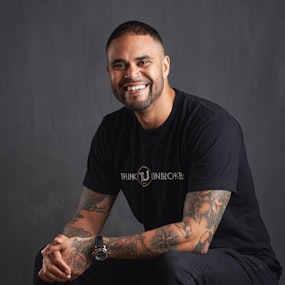
Michael Unbroken
Coach
Michael is an entrepreneur, best-selling author, speaker, coach, and advocate for adult survivors of childhood trauma.
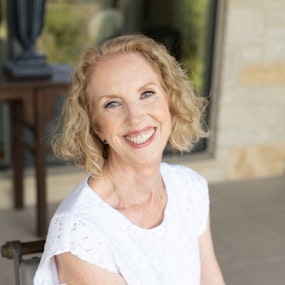
Susan Landers
Author, physician, speaker
Dr. Susan Landers practiced neonatology for 34 years. She is a pediatrician who specialized in the critical care of sick newborns and premature babies. While practicing full-time in a stressful medical field she also raised three children with her physician husband. She has written a book about her experience, called "So Many Babies." Susan is a survivor of the physical and emotional abuse she received as a child. Once she had children, she became determined not to continue the abnormal practices that she grew up with. This was no easy feat. Her perfectionistic personality easily adapted to medicine, but staying calm as a mother was more difficult.
Welcome to The Think Unbroken Podcast!
Here are some of my favorite recent guests!



























